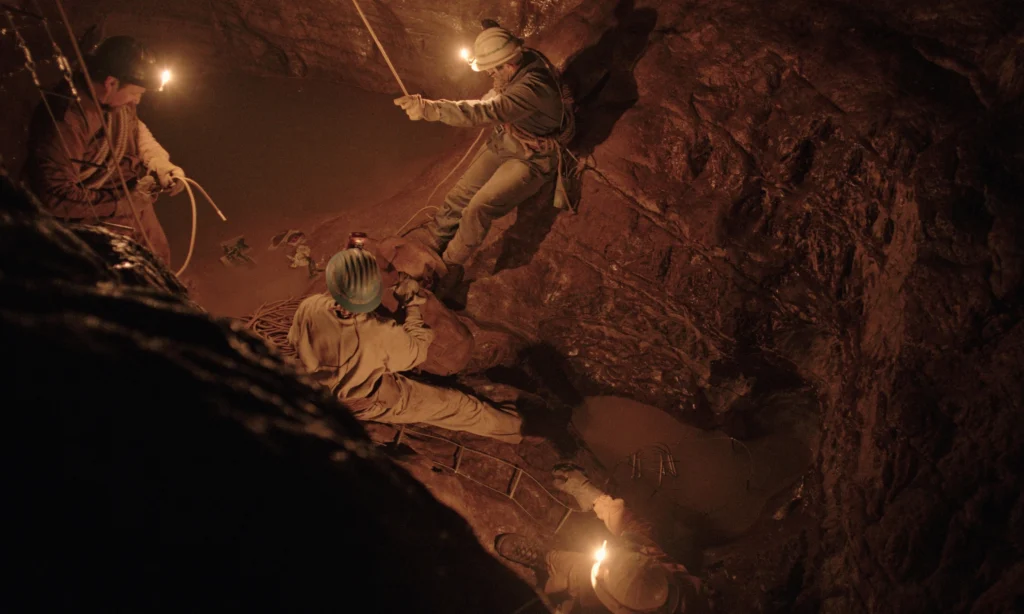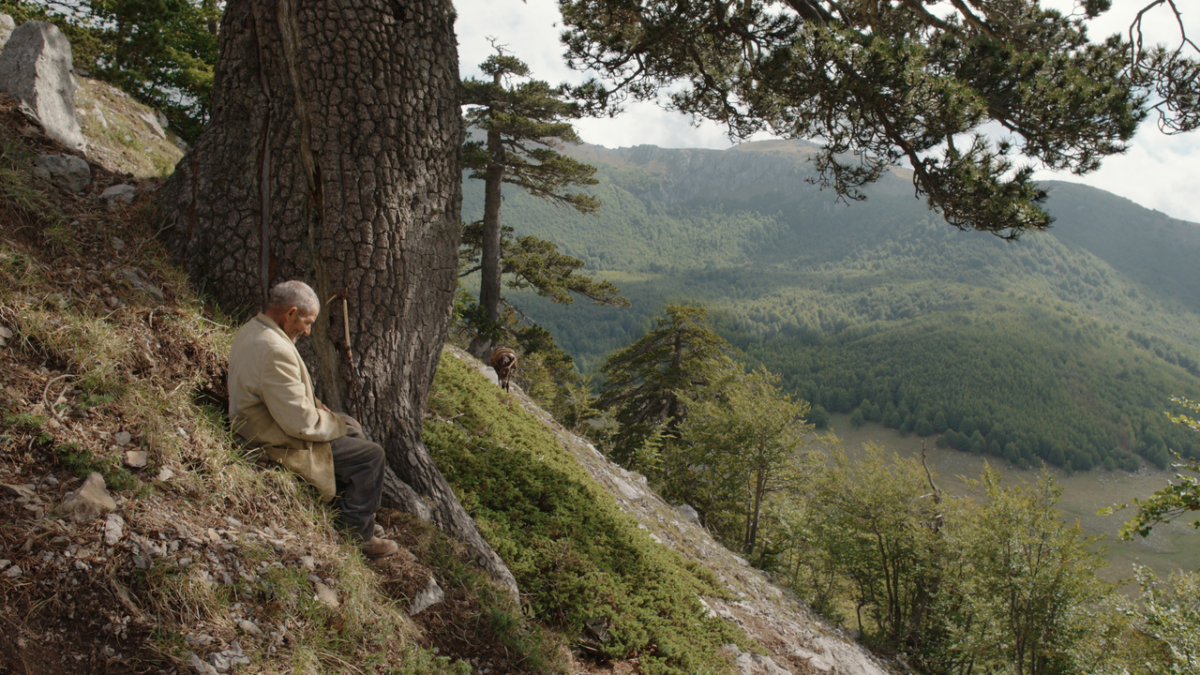We often associate progress with height – look no further than the post-World War II boom in skyscrapers. In a pre-credits scene from Michelangelo Frammartino’s Il buco (The Hole, 2021), a group of Italian villagers, huddled around a staticky television outside a café, watch footage of a newsman touring one such building. “We are climbing up the 132 metres of the Pirelli Skyscraper. In Milan,” the man says. “My God, what a view.”
If the future is in the sky, then the past is deep underground; this dialectic – as well as its philosophical undertones (is to progress to look outward, not within?) – is the focus of Frammartino’s remarkable film. Loosely based on the true story of “a team of very young speleologists…[who] explored the abyss of Bifurto and after endless days of immersion, reached its bottom at -687 meters,” Il buco juxtaposes the explorers’ mission with the last days of an elderly shepherd.
When considered in tandem, these two story threads arouse a challenging question: Does scientific advancement inevitably entail destroying others’ culture, tradition, or even livelihood? Frammartino does not take the easy route of simply damning the explorers; the film is in fact dedicated to them. By the same token, he does not turn a blind eye to the toll it takes on the locals (it’s worth noting that the old shepherd is the only character whose face is clearly shown in close-up); in early scenes, the crew’s truck rumbles through the village and surrounding fields, its noises echoing over the mountains and disturbing the livestock.

The director and cinematographer Renato Berta (who shot Louis Malle’s Au revoir les enfants, 1987) contrast extreme wide angles of the landscape (as seen from atop a mountain, the truck – so imposing in earlier scenes – looks like a toy) with claustrophobic footage of the speleologists inching through the bowels of the cave (they make breathtaking use of negative space, the men’s headlamps often being the only source of light). In one beautifully realized sequence, the explorers (who all remain unnamed) gauge the cave’s depth by setting magazine pages on fire and dropping them down the hole. Charred advertisements and photographs of JFK later found at the bottom underline how the subterranean labyrinth exists in an entirely different realm than the human world. At such depths, our struggles and triumphs mean little.
Besides the aforementioned television sequence and an epilogue preceding the end credits, almost none of the dialogue or text is subtitled during the film proper. This decision can be frustrating, but if you give in to Il buco’s deliberate pacing it ultimately helps create a hypnotic tone. The settings and the characters’ actions tell the story (and, more importantly, convey the message), and the dialogue (much of which seems to be commands and directions among the explorers) becomes secondary. This opacity in terms of the human characters redirects our attention to the true protagonist: the environment itself.
At just over 80 minutes, Il buco doesn’t overstay its welcome, either (I can see this approach losing its power if stretched toward the two-hour mark). During the best moments of its brief runtime, it has the feel of something filmed not just in another time, but in another world – one indifferent to our comparatively minor endeavors.
Il Buco is in select UK cinemas from June 10th
